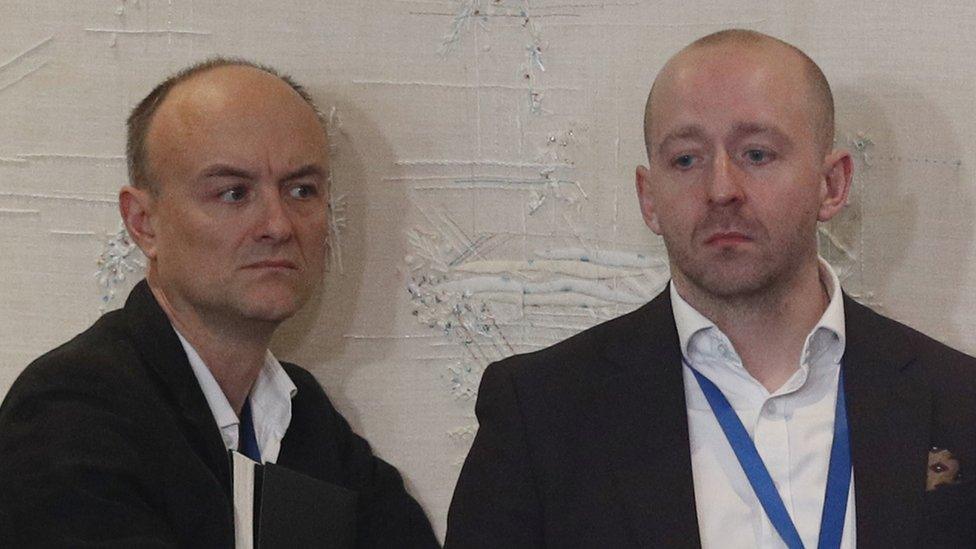No 10 exit much more than a random resignation
- Published

Lee Cain (right) with Dominic Cummings
Uncertainty has reigned over exactly who is in charge in Downing Street.
The director of communications, Lee Cain, is out. But it is much more than a random resignation. He was Boris Johnson's longest serving aide in No 10, and very close to his most senior adviser Dominic Cummings.
Despite those longstanding relationships, the possibility that Mr Cain would be promoted to chief of staff met resistance from some MPs and ministers and he quit.
His promotion was also being resisted, it's understood, by the prime minister's fiancee, Carrie Symonds and his incoming press spokesperson, Allegra Stratton.
Arguments and rivalry in any Downing Street operation are not unusual. This feels different though, like a final act has started to play out after months of building tension.
One insider, who until now has kept their counsel, spoke out in frustration saying: "I just can't describe to you how much of a mess it is."
This is about who is running the country. It's not just about whether a man, who you probably haven't heard of, has fallen out with a politician.
The wider issue now though is not just Mr Cain's departure. It is the unhappiness it leaves behind - anger about what has unfolded shared by other key advisers like the prime minister's most senior aide, Dominic Cummings, and the Brexit negotiator, Lord Frost.
Neither is leaving their jobs - for now. But after months of strain, and fractures inside a government under pressure, tensions are spilling fully into the open.
Rather than a government united in trying to confront a pandemic, a picture emerges instead of rival groups vying for influence over the prime minister himself.